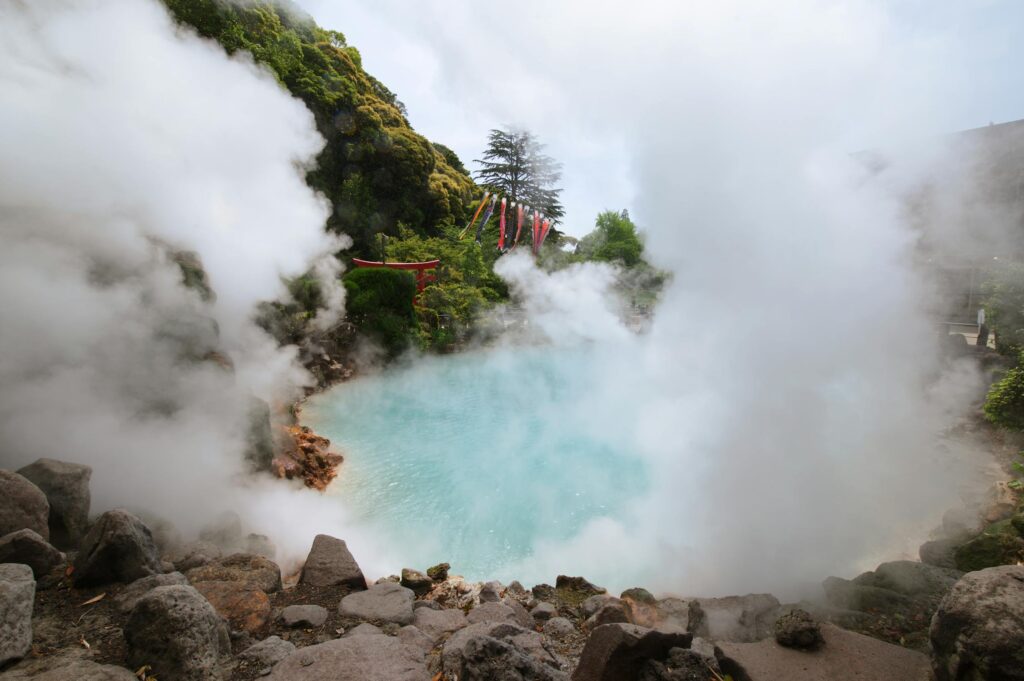Imagine soaking in a steaming hot spring with the serene backdrop of nature, all while being just a short trip from the bustling heart of Tokyo. Whether you’re a local looking for a quick escape or a traveler wanting to experience Japan’s famous onsen culture, there’s no shortage of incredible spots to unwind and rejuvenate.
Overview Of Onsen Culture
Onsen culture is deeply embedded in Japan’s history and daily life. It’s more than just a bath; it’s a cherished tradition.
History And Significance
Onsen culture dates back over a thousand years. These natural hot springs have been used for their healing properties. Ancient texts and drawings often depict people enjoying onsens, reflecting their importance. Historically, they served as communal baths that brought people together. These natural hot springs are revered not only for their therapeutic benefits but also as places of social interaction and relaxation.
Etiquette And Rules
Proper etiquette ensures an enjoyable and respectful onsen experience. Always wash thoroughly before entering the onsen. Use showers provided near the entrance to ensure cleanliness. Tattoos are sometimes restricted, but many onsens have become more inclusive. If tattoos are visible, use a covering or look for tattoo-friendly options. Swimwear isn’t allowed; onsens are enjoyed nude. Quiet and respectful behavior ensures a serene environment for all.
Best Hot Springs And Onsen Locations
Exploring onsen spots near Tokyo offers a perfect blend of relaxation and cultural immersion. Each location presents its own unique charm and therapeutic benefits.
Hakone
Located just an hour from Tokyo, Hakone is famous for its breathtaking mountain views and variety of onsen ryokan (traditional Japanese inns). Tenzan Onsen is a highlight here, offering multiple outdoor baths nestled in nature.
Ikaho
In Gunma Prefecture, Ikaho Onsen dates back to the 9th century. Known for its iron-rich waters, the area offers a relaxing soak that’s believed to alleviate muscle pain and fatigue.
Kawaguchiko
Kawaguchiko, near Mt. Fuji, combines stunning lake views with soothing hot spring baths. Many bathhouses provide views of the iconic mountain, making the experience even more memorable.
Atami
Atami is a historical onsen location by the Sagami Bay in Shizuoka Prefecture. The coastal town offers a variety of hot spring resorts with ocean views and easy access to fresh seafood.
Kusatsu
Renowned for having some of the hottest springs in Japan, Kusatsu is an ideal destination for those seeking powerful therapeutic effects. The Yubatake area is the town’s symbolic center, where you can witness traditional water-cooling methods.
Minakami
Surrounded by mountains and rivers, Minakami Onsen in Gunma Prefecture provides a rugged, natural experience. Outdoor baths along the Tone River offer serene views and a chance to disconnect from the bustling cities.
Izu Peninsula
The Izu Peninsula, known for its coastal beauty and hot springs, offers various onsen spots like Shuzenji and Atagawa. Many inns in this area boast both indoor and outdoor baths along with breathtaking seaside views.
Nikko
Nikko, a UNESCO World Heritage site, is not only historical but also a great onsen destination. Kinugawa Onsen is one of its famous hot spring areas, known for soothing waters and beautiful natural scenery.
Enoshima
Enoshima, an island near Kamakura, pairs beachside fun with relaxing hot spring baths. Enoshima Island Spa offers incredible ocean views while you soak in its therapeutic waters.
Tochigi
Tochigi Prefecture, home to the Nasu-Shiobara area, provides a variety of onsen resorts amid picturesque mountain settings. This region is perfect for those looking to combine hot spring therapy with outdoor activities.
Chichibu
Chichibu, located in Saitama Prefecture, offers rustic hot spring experiences in a tranquil setting. The waters here are rich in minerals that promote skin health and relaxation.
Odaiba
Odaiba might surprise you with its onsen option. Oedo Onsen Monogatari offers a themed onsen experience with Edo-period ambiance, right in the heart of modern Tokyo.
Yugawara
Yugawara in Kanagawa Prefecture features soft alkaline waters ideal for skin rejuvenation. The area is near the coast, providing a perfect mix of mountain and ocean scenery.
Tenzan Onsen
A particularly serene spot in Hakone, Tenzan Onsen offers multiple open-air baths surrounded by lush greenery and rock gardens. The natural ambiance enhances relaxation.
Sengokuhara Onsen
Also part of Hakone, Sengokuhara Onsen is famous for its sulfur-rich waters with therapeutic properties. The area’s expansive pampas grass fields offer a scenic backdrop to your onsen experience.
Shirahone Onsen
Shirahone Onsen in Nagano Prefecture is known for its milky-white waters rich in calcium and magnesium. The bathhouses typically offer stunning mountain views.
Shimoda Onsen
Located on the Izu Peninsula, Shimoda Onsen combines hot spring relaxation with beach activities. The region’s hot springs provide a great way to unwind after a day by the sea.
Okuhida Onsen
Okuhida Onsen in the Japanese Alps consists of several hot springs, including Hirayu and Shinhotaka. Outdoor baths with breathtaking mountain views make this a popular destination.
Kinugawa Onsen
A part of Nikko, Kinugawa Onsen offers relaxing baths in a setting known for its scenic gorges and river views. The area is also popular for outdoor activities and historical exploration.
Kinasa Onsen
In the Northern Alps of Nagano, Kinasa Onsen provides a hidden gem for hot spring enthusiasts. The area is less crowded, making it perfect for those seeking a more private and serene experience.
Tateyama Onsen
Located at the base of the Tateyama Mountain Range, Tateyama Onsen offers hot springs with alpine views. The area is a gateway for mountain climbers and nature lovers, providing a perfect relaxation spot post-hike.
Unique Onsen Experiences
Exploring unique onsen experiences near Tokyo offers a memorable and relaxing journey. Let’s dive into some exceptional types of onsen you can enjoy.
Private Onsens
Private onsens provide a more intimate experience. Often found in ryokan (traditional inns) or luxury hotels, these onsens cater to those seeking privacy and tranquility. Famous facilities like Hakone’s Gora Kadan and Atami’s Furuya Ryokan offer rooms with private outdoor hot springs, ensuring a serene and personal soak without interruptions.
Mixed-Gender Onsens
Mixed-gender onsens, known as konyoku, offer a communal experience where both men and women can bathe together. These are less common but can still be found. Takaragawa Onsen in Gunma is renowned for its vast outdoor baths set in a picturesque, natural environment. Saunas and massage services often accompany these facilities, adding to the overall relaxation experience.
Scenic Onsens
Scenic onsens offer breathtaking views while you soak. Kawaguchiko Onsen, with its stunning vistas of Mt. Fuji, is a prime example. Another fantastic choice is Nikko’s Kinugawa Onsen, surrounded by lush forests and historical landmarks. These locations combine the healing properties of the springs with the added benefit of visual splendor, making the experience even more unforgettable.
Practical Tips For Visiting
Planning a visit to a hot spring near Tokyo requires a bit of preparation to ensure the best experience.
Best Times To Visit
Peak seasons for onsen visits are autumn (October-November) and winter (December-February). During these months, the cool weather makes the hot springs more comforting and enjoyable. If you visit in spring, you can enjoy the blossoming cherry trees. Summers can be overcrowded because of vacations, so visiting in early mornings or weekdays is ideal.
What To Bring
Bring a small towel for modesty and drying off, and toiletries like shampoo and soap, though many onsens provide these. A bathing suit isn’t usually needed as most onsens have separate gender sections. Bring a plastic bag for your wet clothes and a change of fresh ones. Hydration is key—keep a bottle of water handy.
How To Get There
Most onsen locations near Tokyo are accessible by train. For Hakone, take the Odakyu Romancecar from Shinjuku Station. To reach Atami, board the Shinkansen from Tokyo Station. Kawaguchiko is accessed via the Fuji Kyuko Line from Otsuki Station. Private buses and shared taxis are options if you prefer direct routes. Use local maps or navigation apps to plan the journey accurately.
Conclusion
Exploring the best hot springs and onsen experiences near Tokyo in 2024 offers a delightful mix of relaxation, culture, and natural beauty. Whether you’re looking for a quick escape from the city or a deeper dive into Japan’s onsen traditions, there’s something for everyone. From the scenic views of Mt. Fuji at Kawaguchiko to the tranquil settings of Tenzan Onsen, each destination provides a unique and memorable experience.
I hope this guide helps you find the perfect spot to unwind and rejuvenate. Remember to embrace the local etiquette, pack your essentials, and enjoy the serene atmosphere. Happy soaking!


